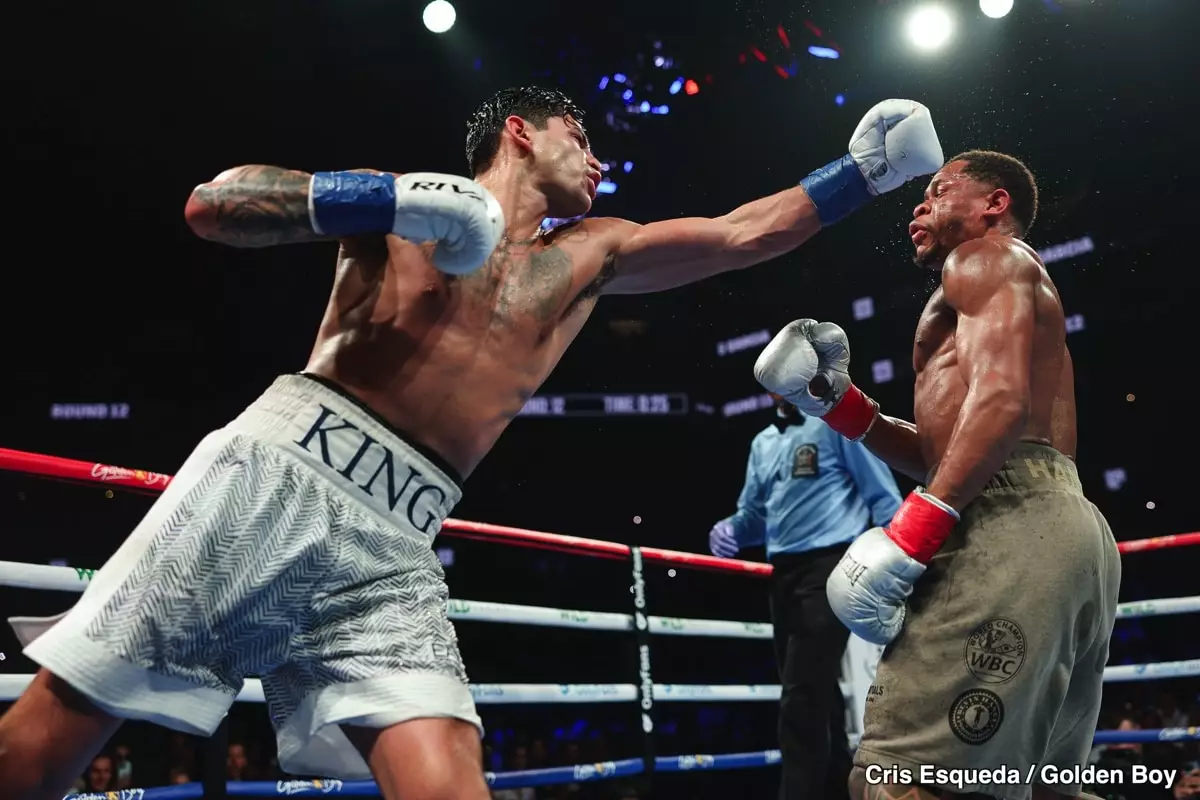In the complex world of professional boxing, the emotions often run high, particularly after significant losses. Recently, Ryan Garcia took to social media to ridicule Devin Haney following the latter’s announcement of a lawsuit against him. Garcia’s mocking tone insinuated that Haney’s financial troubles must be dire to warrant such legal action. By suggesting sponsorship opportunities like a tampon deal, Garcia cleverly but harshly underlined what he perceives as Haney’s desperation post-defeat. This conflict represents not just personal animosity but a broader commentary on the competitive nature and the economics of boxing.
The context of their disagreement can be traced back to their match last April, where Garcia handed Haney a notable defeat. With an impressive record of 24 wins and only 1 loss, Garcia emerged victorious, decisively knocking down Haney three times. This result has seemingly tarnished Haney’s reputation, who, prior to the bout, was regarded as a two-division champion with an undefeated record of 31-0. The loss appears to have significantly dampened demand for Haney as a fighter, and the ramifications are evident in his decision to pursue legal action around issues of battery, fraud, and unjust enrichment.
As Haney contemplates the repercussions of his defeat, he seeks financial compensation for what he claims to be reputational damage and mental distress. However, the irony is palpable; while Haney attempts to reclaim both his image and financial stability, he risks further tarnishing his reputation among fans and future opponents alike.
Haney’s lawsuit, initiated after such a public loss, raises questions about the culture within boxing. Traditionally, fighters are expected to battle their adversaries in the ring, not resort to legal avenues after a defeat. By choosing litigation over a rematch, Haney might inadvertently be casting himself as a fighter who shies away from responsibility. Such perceptions can create a stigma, potentially isolating him from promotional opportunities and partnerships that could be critical for his career moving forward.
Moreover, considering the allegations of performance-enhancing drug use against Garcia complicates the narrative even further. Critics argue that had Garcia not used prohibited substances during their bout, the outcome might have been different. Fans continuously circulate clips of the fight, intensifying the scrutiny that Haney faces. The negative publicity surrounding these incidents may further consolidate the idea that he is “damaged goods,” limiting his potential marketability in an industry that places a premium on image and performance.
Ultimately, Haney’s legal maneuvers could have long-lasting implications not just for him but for how other fighters perceive their avenues for redress within the sport. Potential opponents and promoters may grow wary, knowing that a fighter willing to sue after a setback could be seen as a liability. The boxing community values fighters who accept their losses and look for redemption in the ring, rather than through the courts.
As for Garcia, his confidence and assertive mocking serve to solidify his own position as a rising star, though he too must navigate the complexities of public perception post-fight. The world of boxing is ever-evolving, and how these two fighters handle their respective paths moving forward will shape their careers in profoundly different ways. In this sport, where reputation can be as valuable as skill, each fighter’s choices resonate far beyond the ring.

